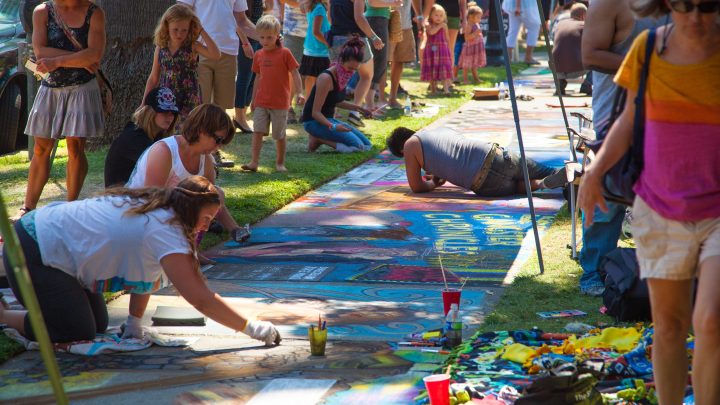
The arts generated more than $150 billion last year

“Marketplace Morning Report” has been covering the ways in which investment in the arts can pay dividends for towns and cities. Across the country, local governments are betting on the ability of exhibits, shows and more to draw people out and get them spending. And we now have some national data that quantifies just how much this industry can contribute in terms of economic activity, in a new report, “Arts & Economic Prosperity 6,” from the advocacy group Americans for the Arts.
Randy Cohen is vice president of research there, and he spoke with “Marketplace Morning Report” host David Brancaccio for more. The following is an edited transcript of their conversation.
David Brancaccio: So you do this every once in a while, this big report. What do you see in this one?
Randy Cohen: “Arts & Economic Prosperity” — it’s an economic and social impact study. And what we see is arts are an industry. They’re $151.7 billion industry in the U.S. And that has incredible economic benefits. For one, it supports 2.6 million jobs across the country. But, unlike most industries, they’ve got a huge value add that they bring to their communities, and that’s that event-related spending that we capture. So, you know, think of the last time you went to an arts event — you may have went downtown and paid for parking, and had dinner, and saw the show or went to the exhibit, and maybe had dessert afterward. What we found is the typical attendee spends $38.46 per person per event, not including the cost of admission. So, the arts are creating commerce for local merchants.
Brancaccio: And what do you want people who are engaged with community affairs — elected officials and others — to draw from numbers like this?
Cohen: What this economic impact study does is it helps government and community leaders understand that when they’re investing in the arts, that they’re getting more than cultural and quality of life benefits — which are vital and central to livable communities — they’re also getting economic benefits. They’re driving commerce to local businesses, they’re supporting jobs. Nationally, they’re generating $29.1 billion in government revenue, and they’re strengthening tourism.
Brancaccio: And we’re still going out to stuff as we come out of COVID? On Broadway, theaters have run into some trouble filling seats, but, nationally, do you see a downturn?
Cohen: Well, it’s less of a downturn, I think, then a slower response than expected post pandemic. And, what we hear — and I think the data is still coming in — is that audiences are about two-thirds to three-quarters back. And so that’s a real challenge for arts and culture organizations out there.
Brancaccio: And, as for definitions, arts and culture — it was a pretty big tent, the definition you would have used?
Cohen: Yes, we do. And we focus on nonprofit arts and culture. And so those are gonna be your theaters, your museums. Folks sometimes ask, “Well, why focus just on that nonprofit sector?” And that’s because when government funds the arts, it’s typically to the nonprofit arts and culture organizations. And it’s an appropriate question to ask: What’s the return on investment for the public?
There’s a lot happening in the world. Through it all, Marketplace is here for you.
You rely on Marketplace to break down the world’s events and tell you how it affects you in a fact-based, approachable way. We rely on your financial support to keep making that possible.
Your donation today powers the independent journalism that you rely on. For just $5/month, you can help sustain Marketplace so we can keep reporting on the things that matter to you.











